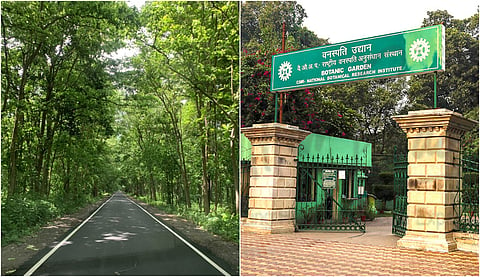Enhancing urban greenery, NBRI set to create third Miyawaki forest in Lucknow
Due to a substantial increase in industrial and vehicular emissions over the years, the air quality in many urban areas, including Lucknow has reached a critical level of degradation.
In an attempt to pacify the damage done to the air quality in Lucknow, the National Botanical Research Institute (NBRI) will set up a dense forest in an area of 1,000 square metres. The artificially developed forest which will be set up at NBRI distant research centre in Banthra will be created using Miyawaki technique.
More about the upcoming forests
Reportedly, the afforestation project is set to be undertaken in collaboration with scientists and researchers from NBRI. Employing the Miyawaki technique, each square meter space will include saplings of a large tree, a medium-sized tree, a shrub and a medicinal plant, strategically arranged to optimize outcomes.
Indigenous varieties of big trees such as Jamun, Arjun and Neem, medium-sized trees including Guava and Kachnar and other medicinal plants will be planted in the area.
Furthermore, this will be the 3rd forest of the city which will be developed using this technique. Previously, two such forests have been created in the Aliganj area and near the Babasaheb Bhimrao Ambedkar University (BBAU) of Lucknow.
Miyawaki forest technique allows 10 times faster growth of saplings
The Miyawaki technique is used to grow forest trees in a non-forest zone at a faster rate. The technique which was first introduced by a famous Japanese botanist, Akira Miyawaki, and allows 10 times faster growth of the saplings with 30 times the density of a natural forest.
The approach offers significant advantages and demands minimal labor, given that the plants primarily employed are self-sustaining, reducing the need for frequent upkeep tasks such as fertilization and irrigation. Moreover, trees cultivated using this technique attain their mature stature within a span of 3 years.
Additionally, the Miyawaki technique has already proved to be successful in establishing forests for numerous initiatives throughout India. This includes its successful application in the Devi Ahilya City Forest project in Indore.
To get all the latest content, download our mobile application. Available for both iOS & Android devices.

